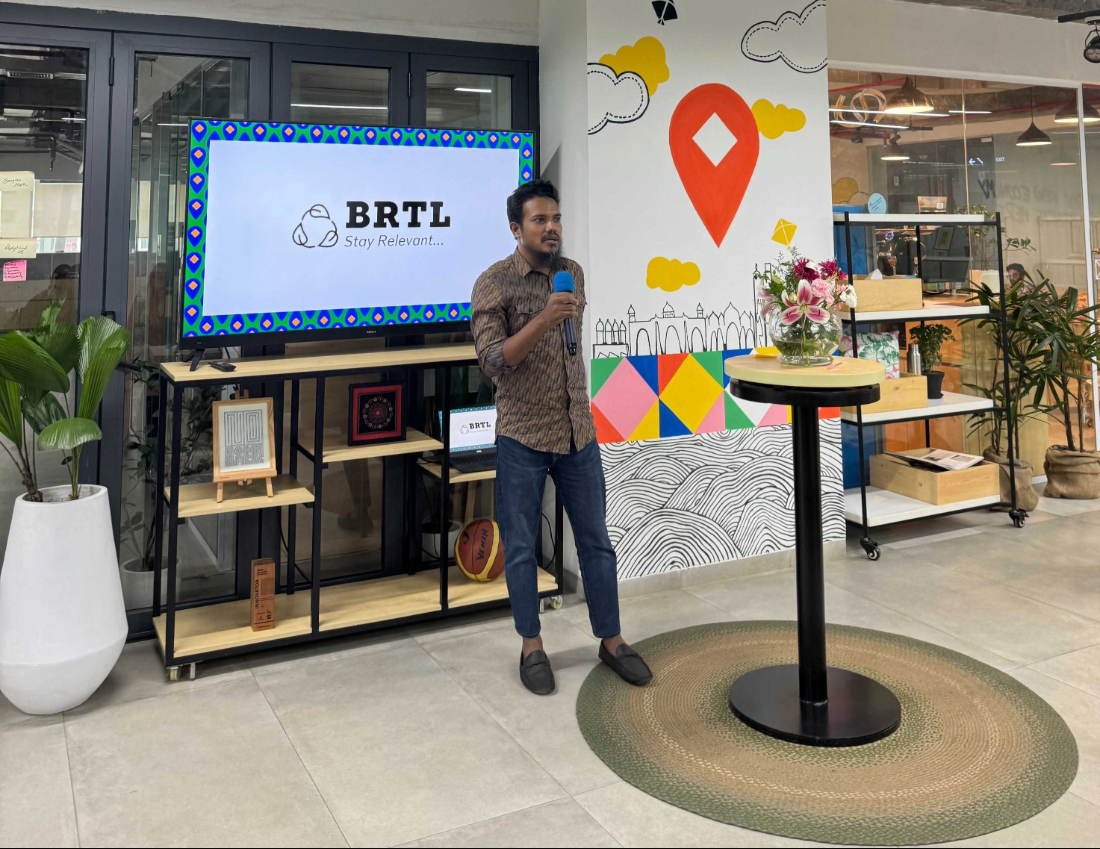
Bangladesh Recycle Technologies Limited (BRTL) is one of the 13 enterprises that graduated from the Orange Corners Bangladesh Incubation Programme in December 2023.

In Bangladesh, where formal waste systems are scarce and unregulated, the sight of children scavenging through garbage piles is common. Rapid urbanization has only worsened the crisis: daily urban solid waste has skyrocketed from 6,500 tonnes in 1991 to over 33,000 tonnes in 2021(LightCastle Partners, 2025), with per capita waste expected to double by 2041. If unchecked, total waste generation could explode sixfold—to 142,000 tonnes per day by 2041 (LightCastle Partners, 2025), overwhelming existing systems and threatening public health and the environment. Yet, current waste management is trapped in inefficiency and inequality. Most waste pickers are untrained women and children from economically marginalized backgrounds, working informally under unsafe conditions. Exploitative wages and the use of child labor persist as cost-cutting measures, while costly disposal and extreme land scarcity push municipal budgets to the brink. This economic and social failure calls for bold, market-driven innovation that tackles hidden external costs, lifts vulnerable workers, and transforms waste from a liability into an economic asset. Enter Bangladesh Recycle Technologies Limited (BRTL), a trailblazing enterprise using technology and inclusive practices to revolutionize waste management and build a sustainable circular economy.
The Spark of Innovation
The idea behind BRTL began in 2019 when founder, Syed Amin witnessed something that challenged the norm. As an Area Manager at Grameen Uniqlo at that time, he saw Japanese colleagues clean not just stores but even the drains outside. Their dedication to public spaces stood in stark contrast to the inaction of many locals.
He realized that plastic litter wasn’t just a nuisance, it was value going to waste. While charity drives came and went, no one was creating infrastructure that could transform this challenge into opportunity. This insight gave birth to BRTL, a mission-driven enterprise focused on cleaning Bangladesh profitably while empowering the waste workers who had long remained invisible.
As Syed Amin puts it, “We’re not just recycling plastic, we’re recycling poverty into prosperity, and waste into dignity. Real change begins when the invisible hands behind our clean cities are finally seen, empowered, and valued.”
Overcoming Barriers
BRTL’s path to impact was not without its hurdles. The plastic waste ecosystem in Bangladesh is deeply informal, fragmented, and under-recognized. The absence of organized systems made it difficult to ensure consistent and quality plastic waste supply.
To solve these challenges, BRTL built trust within communities by introducing fair pricing, and launching GreenFlow, a supplier financing tool that provides interest-free working capital to informal recyclers. A tech-enabled circular marketplace connected scrap shops, processing units, and manufacturers, allowing for traceable, ethical sourcing and increased operational efficiency.
Convincing buyers to choose ethically recycled plastic was another barrier. But through verified impact, reliable supply, and quality assurance, BRTL successfully secured 12 major B2B clients with a combined demand of 60,000 metric tons annually.
The Orange Corners Breakthrough
Joining Orange Corners Bangladesh marked a defining phase in BRTL’s growth. The programme offered a space to sharpen business strategy, refine impact models, and access mentorship that helped strengthen leadership and resilience.
Orange Corners Bangladesh is a multi-year entrepreneurship programme by the Dutch Ministry of Foreign Affairs, designed to support youth and early-stage entrepreneurs. It is spearheaded by YY Ventures, in collaboration with SAJDA Foundation, Bangladesh Youth Leadership Center (BYLC) and Unilever Bangladesh. Through ideation, incubation, funding, and technical support, Orange Corners Bangladesh helps build sustainable, investment-ready businesses that drive social and environmental impact.
BRTL describes the programme as a turning point in their journey: "The access to mentorship, networking, and equity-free funding accelerated our growth and strengthened our impact on waste workers and the environment.”
By the end of the programme, BRTL secured Track 2 funding of €31,225 to expand its work. Looking back, the team shared, “Orange Corners Bangladesh's incubation programme and matching grant were instrumental in scaling our plastic recycling operations, enabling us to expand our processing capacity almost 3 times, and enhance our circular marketplace, Nabayon.com.”
Measurable Impact
BRTL has recycled nearly 6,000 metric tons of plastic waste, preventing over 14,700 metric tons of CO₂ emissions, equivalent to taking more than 3,000 cars off the road for a year. Their model has integrated over 432 informal waste workers into the formal economy, increasing average daily income from $4 to $12.
Through GreenFlow, over $38,000 has been disbursed to small recyclers, with more than 30 percent of supported businesses led by women. With $805,000 in revenue and local partnerships, BRTL is creating an ecosystem where climate action and inclusive growth go hand in hand.
Looking Ahead
BRTL aims to expand to 10 or more decentralized processing units and onboard 1,000 informal workers by 2026. GreenFlow will scale to unlock over $250,000 in inclusive finance. A new mobile app is in development to streamline onboarding, logistics, and B2B transactions.
By 2030, BRTL envisions recycling over 100,000 metric tons of plastic annually and preventing more than 250,000 metric tons of CO₂ emissions. Their goal is bold but clear, to become Bangladesh’s first zero-waste-to-landfill enterprise while building dignity and prosperity for the people behind the process. BRTL’s story is proof that market-driven solutions can transform systemic issues. With the right vision and support, even the dirtiest problem can become a clean solution for people, profit, and the planet.